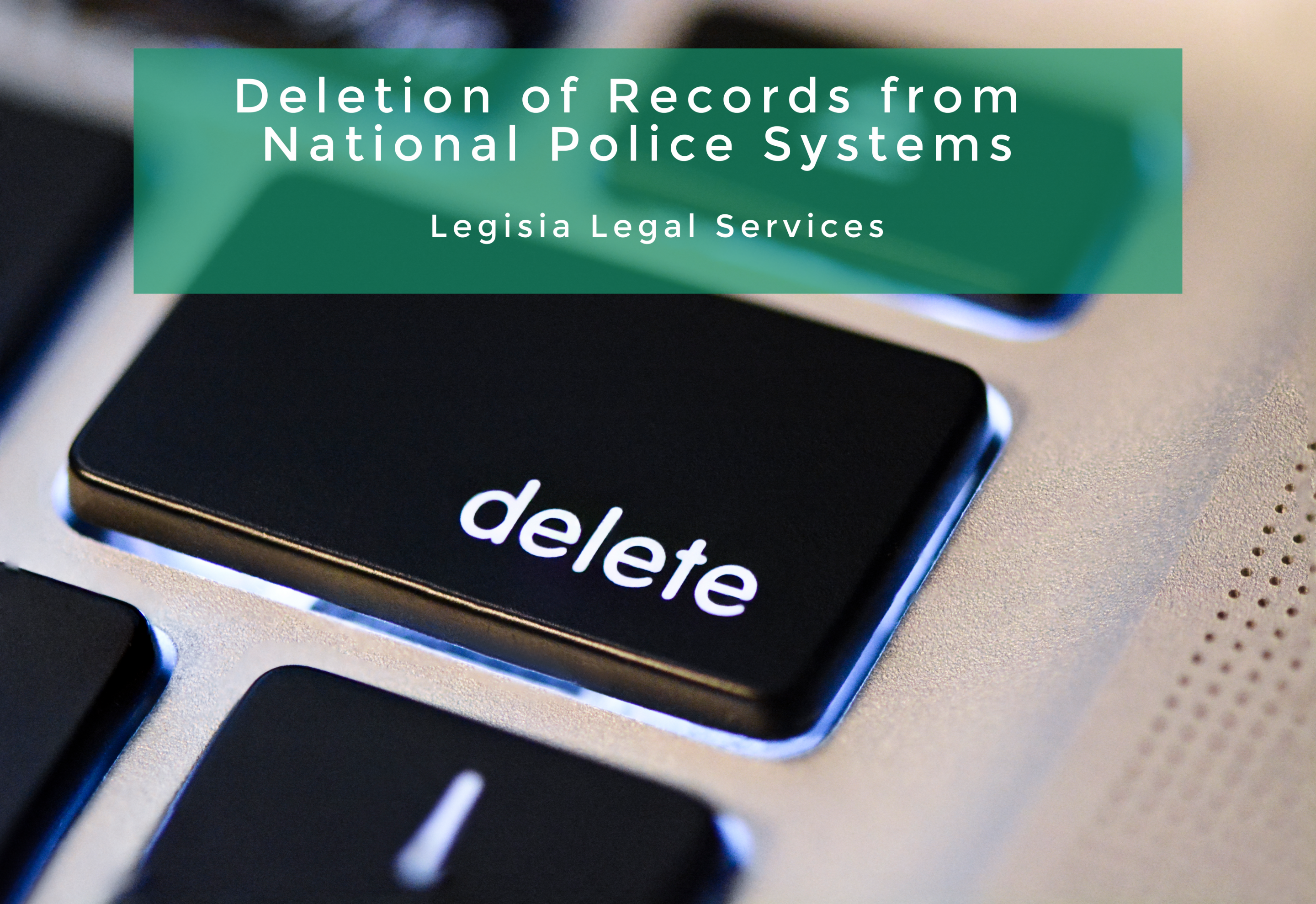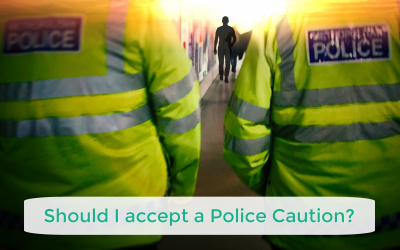Deletion of Records from National Police Systems
It is possible to apply for the deletion of your records from National Police Systems, namely the Police National Computer (PNC), the National DNA Database (NDNAD) and also the National Fingerprint Database (IDENT1).

Deletion of Records from National Police Systems
Deletion of Records from National Police Systems
It is possible to apply for the deletion of your records from National Police Systems, namely the Police National Computer (PNC), the National DNA Database (NDNAD) and also the National Fingerprint Database (IDENT1).
If your records are deleted from the PNC under the NPCC’s Deletion of Records from National Police Systems procedure, then the police will also remove your Custody Image.
What records can be removed under the Deletion of Records from National Police Systems Procedure?
In terms of PNC records, generally the only records that can be removed under the Deletion of Records from National Police Systems procedure are records that have been administered solely by the police, such as a cautions, youth warnings/reprimands (now called youth caution), Penalty Notices for Disorder (PND), and arrest records.
It is also possible to apply for the deletion of DNA/fingerprints, however if a PNC record is deleted, typically these records will also be removed.
If your case has been concluded “no further action” or NFA – then your arrest record will be retained on the PNC until you reach 100 years of age (unless deleted) and in most cases your DNA/fingerprints will be expunged immediately.
If you have been arrested and your case was dropped, and the allegation was a serious one (a Qualifying Offence) then your DNA and fingerprints can be kept for a maximum of 5 years.
If you have a court conviction (including an absolute and conditional discharges – although see here for more details) then you will not be able to apply for record deletion under the NPCC’s Deletion of Records from National Police Systems procedure.
Although the originating police force will be the “Data Controller” for the purposes of a conviction recorded on the PNC, and their name will be listed on the PNC as being the “owner” of a record, the police will not be prepared to delete your conviction as it has been issued by a Court. We believe this rule is amenable to challenge, and so if you have a minor, historic, Court conviction, please get in touch to see if we can help.
NPCC Deletion of records from National Police Systems Guidance
The National Police Chief Council (NPCC), which is essentially the national oversight body for the police, issues the Deletion of records from National Police Systems Guidance. The NPCC’s stated aim is to bring “police forces in the UK together to help policing coordinate operations, reform, improve and provide value for money.”
The police introduced the Deletion of Records from National Police Systems Procedure in 2015. This process facilitated deletion requests made to the police. Prior to the deletion procedure being implemented, the process was fragmented across each respective police force, without any centralised body. This would often result in cases becoming contentious quickly, with court proceedings being issued, and costs being elevated.
Once the deletion process was introduced, this streamlined and formalised the records deletion process, requiring the police to provide a response to a records deletion request, and introduced an appeals process. Whilst the records deletion process is not perfect, it did greatly improve access to a decision and most importantly emphasised to the police that they had a duty to properly consider record deletion requests.
Prior to the introduction of the records deletion process we were frequently engaged in contentious pre-action claims, and the issuance of judicial review proceedings – now that the records deletion process has been implemented, the police do engage in a much more constructive way, taking sensible decisions, avoiding the need for protracted and costly court proceedings. In some cases court proceedings are inevitable, but if a case has a good basis for deletion, the police will often see reason.
Ground for deletion under the NPCC Deletion of records from national police systems guidance
The police introduced a number of grounds for the deletion of records, these grounds generally reflect case law, and also simple common sense. The Grounds for Deletion are as follows:
- Unlawfully Taken
- Mistaken Identity / Unlawful Arrest
- No Crime
- Malicious/False Allegation
- Proven Alibi
- Incorrect Disposal
- Suspect status not clear at the time of arrest. Judicial Recommendation
- Another person convicted of the offence
- Public Interest
If you can prove any one of these grounds then the police will remove your record. There is no concrete burden of proof, namely you don’t need to prove your case to the criminal or civil standard per se, but the police will need to assess your case and make a “professional judgment based on the information available.”
Locally held police records
Locally held police records are not covered by the NPCC’s Deletion of Records from National Police Systems Procedure. Local records can include items such as an interview records, custody records, statements, 999 calls, shoulder-cam footage, and CCTV footage.
These records will be held locally by the respective police force, but may also be transferred onto the Police National Database (PND).
You can apply for local records to be deleted, but this can not be done via the Deletion of Records from National Police Systems Procedure. The retention of local records is governed by the Management of Police Information (MoPI) Guidance which is issued by the College of Policing.
DBS Certificates and PNC & PND records
Non-conviction Information that is held on the PNC, PND or locally can causes issues with respect to Enhanced DBS checks, and can, depending on the circumstances, trigger or be used in DBS Barring proceedings.
Deletion of Records from National Police Systems Solicitors
If you have a record held on police systems that you would like deleted, then please get in touch.
We have many years of experience in dealing with deletion applications, challenging DBS enhanced certificate disclosure cases, and also DBS barring appeals. We have dealt with literally hundreds of cases, and we believe we have the broadest depth of experience and knowledge in this specialist field of practice.
Please get in touch to discuss your case.
Contact Us
Related Articles
Related
Can Local Police Records be Deleted?
In the recent High Court judgment of AB v Chief Constable of British Transport Police [2022] the court ordered the deletion of locally retained police records.Can Local Police Records be Deleted?Can Local Police Records be Deleted?In the recent High Court judgment of...
US Immigration and Cannabis Criminal Records
If you have a criminal record for possession of cannabis (marijuana) then will you be deemed inadmissible for a migrant or a non-migrant visa. This article looks at what can be done when someone has a criminal record for possession of drugs, and in particular...
Should I Accept a Police Caution?
Should I accept a police caution? We are often asked by clients whether they should accept a police caution.Should I accept a police caution?Should I accept a police caution?We are often asked by clients whether they should accept a police caution. Whether to accept a...
Can Local Police Records be Deleted?
In the recent High Court judgment of AB v Chief Constable of British Transport Police [2022] the court ordered the deletion of locally retained police records.Can Local Police Records be Deleted?Can Local Police Records be Deleted?In the recent High Court judgment of...
US Immigration and Cannabis Criminal Records
If you have a criminal record for possession of cannabis (marijuana) then will you be deemed inadmissible for a migrant or a non-migrant visa. This article looks at what can be done when someone has a criminal record for possession of drugs, and in particular...
Should I Accept a Police Caution?
Should I accept a police caution? We are often asked by clients whether they should accept a police caution.Should I accept a police caution?Should I accept a police caution?We are often asked by clients whether they should accept a police caution. Whether to accept a...
Police Caution Removal Solicitor
If you have received a police caution, we are experts in police caution removal.Police Caution Removal SolicitorPolice Caution Removal SolicitorIf you have received a police caution, we are experts in police caution removal. We are a dedicated legal practice focusing...

Head Office
Legisia Legal Services
The North Colchester Business Centre
340 The Crescent
Colchester
Essex, CO4 9AD
Cases are conducted nationwide & internationally
Additional consultation Address (Not Postal)
50 Liverpool Street
London EC2M 7PY




